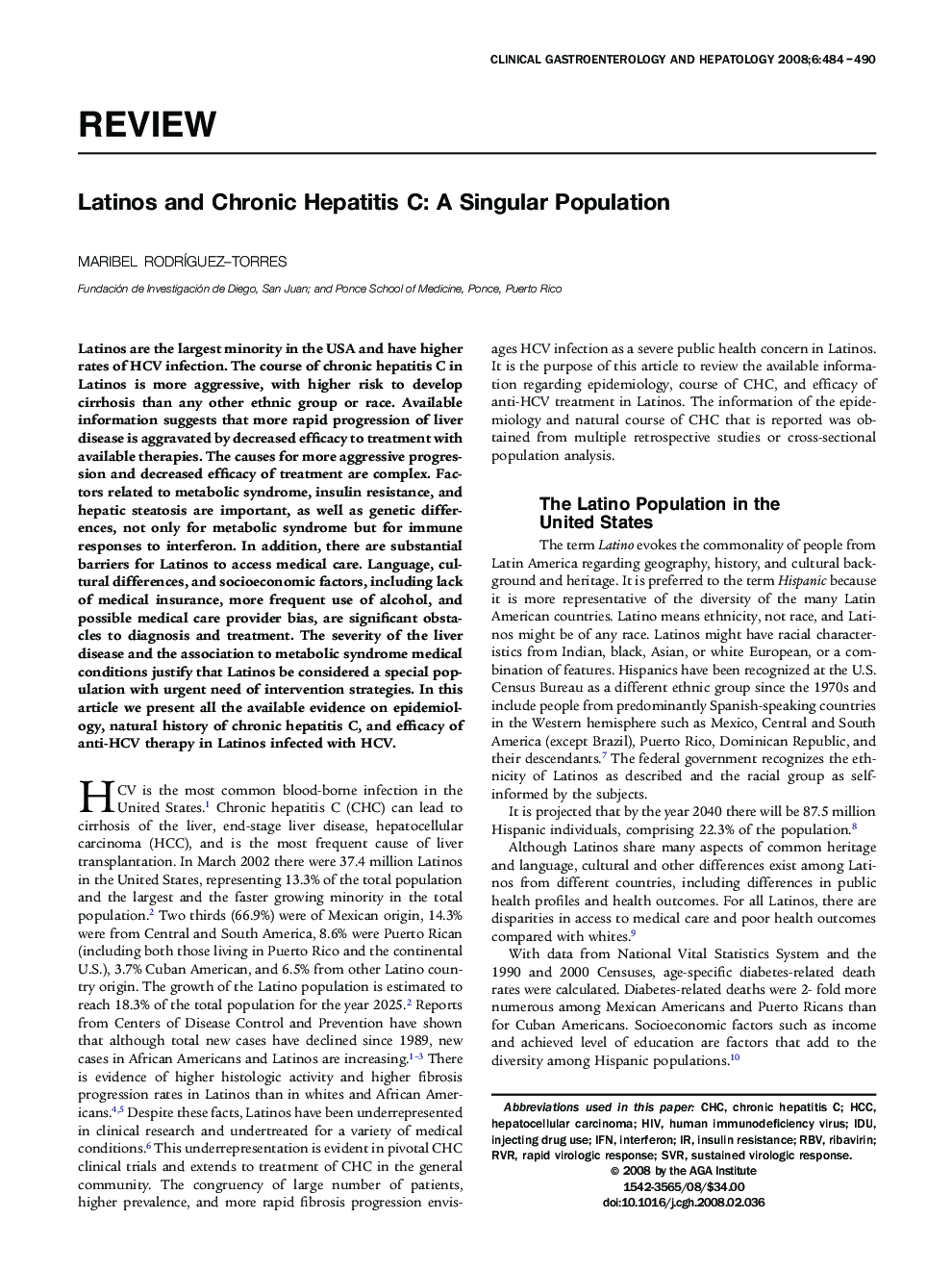| Article ID | Journal | Published Year | Pages | File Type |
|---|---|---|---|---|
| 3284527 | Clinical Gastroenterology and Hepatology | 2008 | 7 Pages |
Abstract
Latinos are the largest minority in the USA and have higher rates of HCV infection. The course of chronic hepatitis C in Latinos is more aggressive, with higher risk to develop cirrhosis than any other ethnic group or race. Available information suggests that more rapid progression of liver disease is aggravated by decreased efficacy to treatment with available therapies. The causes for more aggressive progression and decreased efficacy of treatment are complex. Factors related to metabolic syndrome, insulin resistance, and hepatic steatosis are important, as well as genetic differences, not only for metabolic syndrome but for immune responses to interferon. In addition, there are substantial barriers for Latinos to access medical care. Language, cultural differences, and socioeconomic factors, including lack of medical insurance, more frequent use of alcohol, and possible medical care provider bias, are significant obstacles to diagnosis and treatment. The severity of the liver disease and the association to metabolic syndrome medical conditions justify that Latinos be considered a special population with urgent need of intervention strategies. In this article we present all the available evidence on epidemiology, natural history of chronic hepatitis C, and efficacy of anti-HCV therapy in Latinos infected with HCV.
Keywords
Related Topics
Health Sciences
Medicine and Dentistry
Gastroenterology
Authors
Maribel RodrÃguez-Torres,
